Charles Pakana (Victorian Aboriginal News):
Over the past several months, we’ve brought you on this program a number of interviews from Victorian Aboriginal elders and seniors about what reconciliation means to them in the post-referendum environment. We’ve previously had Aunty Esme Bamblett, and also Wotjoboluk woman, Janine Coombs.
Today, as we sit up here on Latji Latji country by the banks of the Murray River, and for those of you who aren’t too sure where Latji Latji country is, we’re up right near Mildura. I’m joined by a great mate of Victorian Aboriginal News, Uncle Col Clark. He’s a Barkindji and Ngiyampaa man, an artist for the past 20 years, but with a background before that of goodness knows how what. Champion orange picker, cordial maker, and champion ginger beer maker, I believe.
Uncle Col Clark:
Yes.
Charles:
Uncle Col, thanks for joining us on the program today.
Uncle Col:
Yeah, no, it’s my pleasure to be here and to be able to work with you. I always find it a great honor to talk with you and-
Charles:
We have fun. We have a bit of fun.
Uncle Col:
We certainly do. We certainly do. I always say we have to get the work done first and it’s always good to have that fun.
Charles:
Too right.
Uncle Col:
That’s one of the things I live by.
Charles:
Now, you’re a 72-year-old man. You’re not ashamed of saying that. There’s nothing wrong with that.
Uncle Col:
No, absolutely. I reckon it’s pretty good to be classed in that elder area. I just love it. I reckon that’s a honor also.
Charles:
Now, reconciliation, a lot of people were saying that after the referendum, where the Voice for the Constitution was voted down, that reconciliation was dead. What are your thoughts on that? Is reconciliation dead and what’s the future for it?
Uncle Col:
Reconciliation for me depends on what you want out of it. Reconciliation for me is coming together and I always believed that we have that area where we can come together. I’ve always had a real problem with organizations and how they tend to build their little things that they want. But for me, it’s always been about community. And if we’re going to reconcile, we’re going to reconcile not only within the organizations but with our mobs. And that’s regardless of who those mobs are.
For example, myself, I’ve come from outer New South Wales, but I’ve spent 10 years in and around Victoria. I don’t think there’s a place I haven’t been, but I always find it the same thing. If we look at reconciliation, it’s coming together, that we’re able to work on the same page. We all have different ideas, but it’s good to be able to take those ideas and make it into a general area that we can all work with.
Charles:
So, what are some of the specific areas that you think we could be working towards improving the relationships between non-Aboriginal and Aboriginal? We’ll keep out of the inter-Aboriginal environment reconciliation there, because we’ve yarned about that previously. But when it comes to general reconciliation, non-Aboriginal and Aboriginal, what are some of the areas you think could be worked on?
Uncle Col:
For me, I always think that it’s good that, just going back to where I come from in Wilcannia, I really believe that reconciliation was there because we needed the whites with us or the non-Indigenous people, and us as Aboriginal people, we needed each other because they had the money, we had the skills, if you know what I mean.
Charles:
Yeah, of course.
Uncle Col:
And without money then, you’re not able to get what you need in life. So, I really think that we work together as a community and community is not just all of us as Black fellas. It’s what’s within that community.
Charles:
You mentioned that reconciliation was working up in Wilcannia. In what way? I mean, you talked about the money and the skills, but was there that mutual respect between Black and white communities?
Uncle Col:
Absolutely. Like I said, we all needed one another for what our needs were. Their needs was the work. Ours was about the money. But in community, when we went down the streets, everyone respected everybody. And reconciliation for me is that, a respect that we can give to each other and it doesn’t matter where we come from, if we can still respect one another.
Charles:
And that respect though for a lot of people is pretty hard-won and a bit difficult to come by. A lot of people sort of come in, they see Aboriginal people and they just come back up with a lot of the prejudices they were brought up with as children. When you look at what’s happening in Melbourne, as you do a fair bit of stuff down in Melbourne, do you see needs down there when it comes to reconciliation?
Uncle Col:
Oh, absolutely. Down there is so much prejudice, redneck ways.
Charles:
Yeah, for sure.
Uncle Col:
People have still got that born in them. We only got to look at the results just across the ditch there to America, one of the biggest countries in the world.
Charles:
Oh, let’s not go there, Uncle.
Uncle Col:
But we look at those types of things, but that’s a part of life. No matter which community we’re in, we’re still going to have that. But it’s how we work with it by getting our messages across that they’re able to understand it better.
Charles:
What do you think that non-Aboriginal people, and let’s look at Melbourne because you’ve had a fair bit of experience down there. But what are some of the things down in Melbourne that the non-Aboriginal community can do to improve relationships with the Aboriginal community? Because so many of them, they say, “I’ve never even met an Aboriginal person,” but they don’t necessarily even go out of their ways to do that. But what would you like to see non-Aboriginal people doing to gain that understanding of who and what we are in the Melbourne environment at least?
Uncle Col:
In the Melbourne environment, I think myself that you’ve got to make yourself available to these areas, whether it’s be in these little systems or different things that we all have to live in, but if they can make themselves available, well, I want to learn what you got, I want to know about it.
Charles:
Like a gathering place, you mean?
Uncle Col:
Yes.
Charles:
Of course.
Uncle Col:
That we can come together, that we can swap ideas. Gee, that’s good how you do your stuff and that’s good how you do yours as well. We can complement one another, that we’re able to reconcile our past and pollinisation and all the different things that’s happened to us is always going to be there. I always say, “Out of life, there’s always good and bad. It’s what we learn from it that takes us and makes us stronger.”
Charles:
You’ve lived in Mildura for, what, 10 years now?
Uncle Col:
Yeah.
Charles:
Okay. How would you say that reconciliation and respect between Aboriginal and non-Aboriginal people plays out here in Mildura? Because this is an area far away from Melbourne as you can pretty well get in Victoria. Didn’t do too well on the referendum. There was a very high no vote here. How would you classify this community without slagging off too much, of course?
Uncle Col:
In Mildura, I’ve always noticed it’s more dominant of prejudice against us as people. Our stats don’t stack up to what they think it should be, but then there’s a lot of reason why those things don’t stack up or add up, that we’re maybe fallen by the wayside a little bit. But there are things that we can do about that by being more open. So, we need each other in community to be able to help those ones. Don’t just look at them. You’re not an animal. We’re human beings. And that’s the way I think that the ones that have that prejudice part of them, where they should be thinking then those lines rather than just classing us a group, all tainted with the same brush.
Charles:
Have you experienced much personal racism up here in Mildura since you’ve been here?
Uncle Col:
Oh, not as much, but I do experience some of that. I have different ways that people look at you and maybe I say something and then it’s like it’s quite easy to create argument because everyone’s all got their different views. But when it comes down to the prejudice part, it’s always been here. And it’s something that both sides need to come together on that to be able to reconcile that, that we have an understanding between you and me.
Charles:
I need to ask about 2023 and the referendum period or the lead up to the referendum. How difficult was it for you and your family and other mob up here in Mildura in an environment that did come out so heavily with a no vote?
Uncle Col:
Well, it was devastating for a lot of the mob that people didn’t want to give us an opportunity. It was hard for them to understand that people, non-Indigenous people, were so against anything that might have been good that came our way and it was just like government. For everything good that they gave us, they always took it away from us. And so it was just devastation all over again.
There were even to the point of fights. Somebody put up his Australian flag and when some of the mob put up their flags, then they wanted to go around and tear those things down. So, that’s how it affected, that it was like the Klu Klux Klan sort of thing. People were just so into that-
Charles:
That level of anger?
Uncle Col:
That level, yeah.
Charles:
So, it’s been 12 months now since the referendum. Has there been a change or has there been an increase in anger? What’s changed in the area?
Uncle Col:
I still think the anger is out there and that comes from that non-Indigenous side of us. But we as people, we tend to, like all mob, we’re able to get over things and move on with life. It’s so much easier for us. But some people just carry that. The non-Indigenous side, they just keep carrying that. They don’t want to let it go because I don’t know, it’s about that power they may feel that they carry over us.
Charles:
So, you’ve mentioned before that one of the things that needs to happen is that mutual understanding, and from that mutual understanding comes respect. What else would you like to see happen here in this beautiful area of Mildura with regard to a changing attitude towards reconciliation?
Uncle Col:
Well, I think we have to come together, and how we do that. There could be this part of town meeting us, that one to where we all come together to be able to say our pieces. We have so much land here, beautiful country, that where we can all come together, that’s black and white because we all need one another at the end of the day. If we’re going to live in community, we all need to be tracking down the same area because one part doesn’t suit the other part. And it seems like people don’t want to do that.
Charles:
Do you think there needs to be a level of truth-telling? And the reason I’m asking that is because recently I was out at Ballarat. I was speaking to Uncle Al Harris out there who’s a community leader and elder, and he called for community truth-telling. Do you think that’s something that would be beneficial to the entire Mildura community?
Uncle Col:
Yeah, I think so. I know he’s an honorable man and truth-telling, I reckon he’s onto something there. They’re the types of things that can break that barrier to where we all then have a mutual understanding of what it means. They got their side of a story, we got ours, but it’s also too acknowledgement of what had happened. And that can be brought out in that truth-telling. It’s not about pointing the finger at anybody, it’s about having an acknowledgement of what happened, but how we can work forward and that we can all live in the same area and that we can get on so much better.
Charles:
So, we’re seeing the Yoorrook Truth-Telling Commission actually winding up in November of this year, only a couple of weeks away from now. Do you believe that there is a need for truth-telling to continue after Yoorrook has closed down and to make it a lot more rural and regional, to be focusing on areas like Mildura, Ballarat, Bendigo?
Uncle Col:
All the big centers across Victoria. If we’re going to really get something out of it, then we got to know the truths about thing and passing that onto communities that we live in.
Charles:
Do you think that is an important part of reconciliation?
Uncle Col:
Oh, absolutely. Absolutely. If we don’t reconcile with one another, then how will you know? Or how will I know?
I think it’s an investment that maybe the government should look at, rather than letting that part go there and that’s the end of it. Maybe that’s an area they could invest into. The truth-telling and what those stories meant, the devastation and for people to understand that. Non-Indigenous people, that this is never what we were wanting. All we wanted was our lands and to be able to live in harmony with where we’re sitting here today on the river, that’s all we wanted. We were simple people. Not that we were mad, we were simple people and all we wanted is simple life, non-complicated, that we have to deal with stuff that’s above what we think.
Charles:
We’ve also in Victoria just had local government elections. Do you think that reconciliation would benefit from having a greater number of Aboriginal people in local government councils across the state?
Uncle Col:
Myself putting a number on it, I reckon there should be… Well, I’ll go for one, but I really think that those positions should be identified. That each government right across Victoria should have a component of Aboriginal people within that. That’s what they’re try and do in the organizations or the system. They got all of that there, but why isn’t it in the government where you can have a proper say? I really think those areas should be identified and made available.
Charles:
What else would you like to see happen when it comes to reconciliation, whether it’s in Mildura or across Victoria? What else do you think could happen?
Uncle Col:
Reconciliation, I just think it’s a better way of life that we can’t go around. I don’t want to be hating people.
Charles:
Yeah, of course.
Uncle Col:
I don’t want to be hating people, but it’d be nice if we could have an understanding, that we can say g’day to one another and not look the other way. It’s like what I just said, simple things. Reconciliation for us, and I think even with our own mobs, we have to reconcile some of that background too that we created, that we became led by different things. And I mentioned it a little bit earlier on, but reconciliation is a way. If we can reconcile with one another and in community, then that’s the way to go.
Charles:
Uncle Col, thanks so much indeed.
Uncle Col:
You’re welcome.


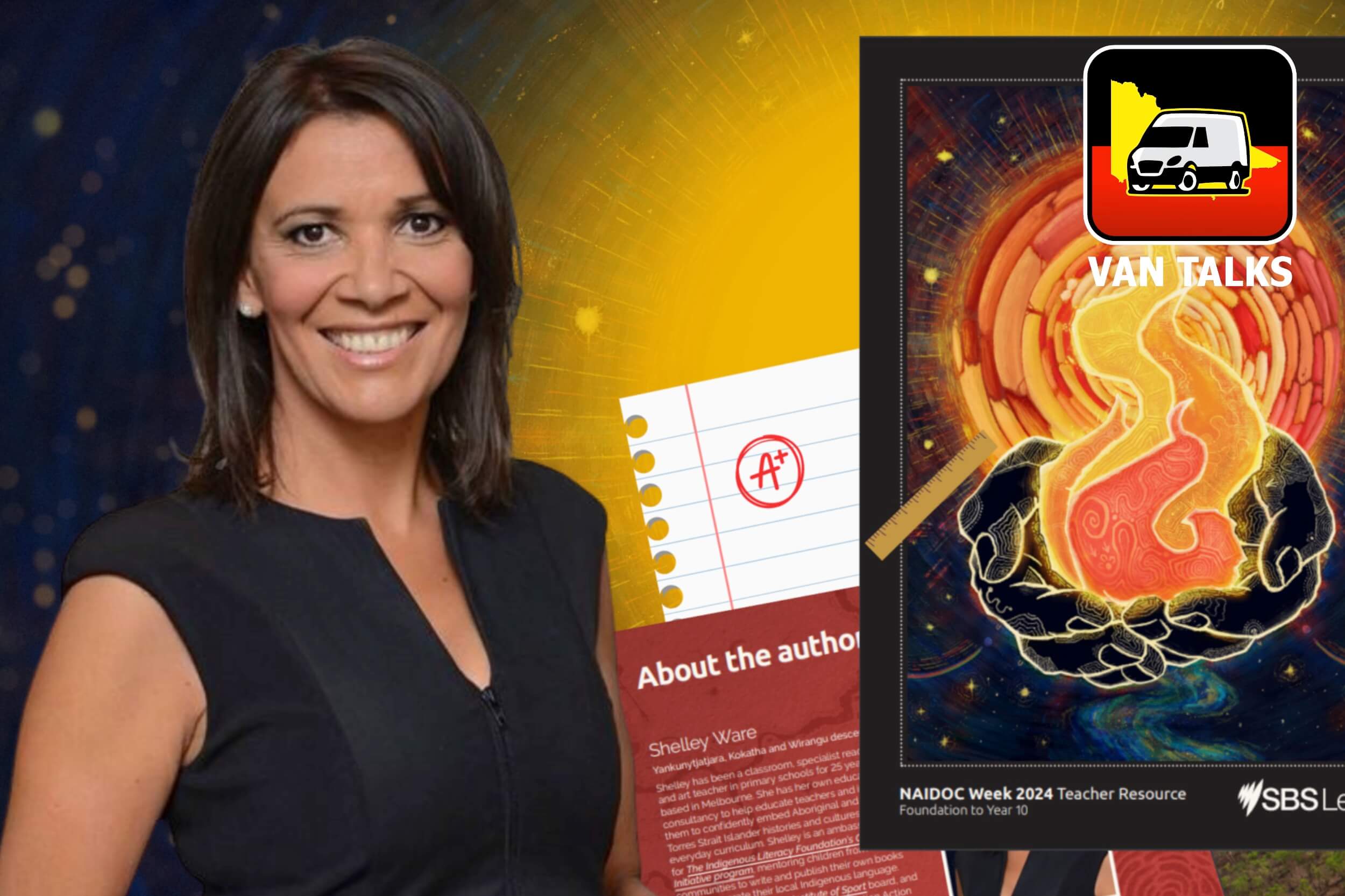
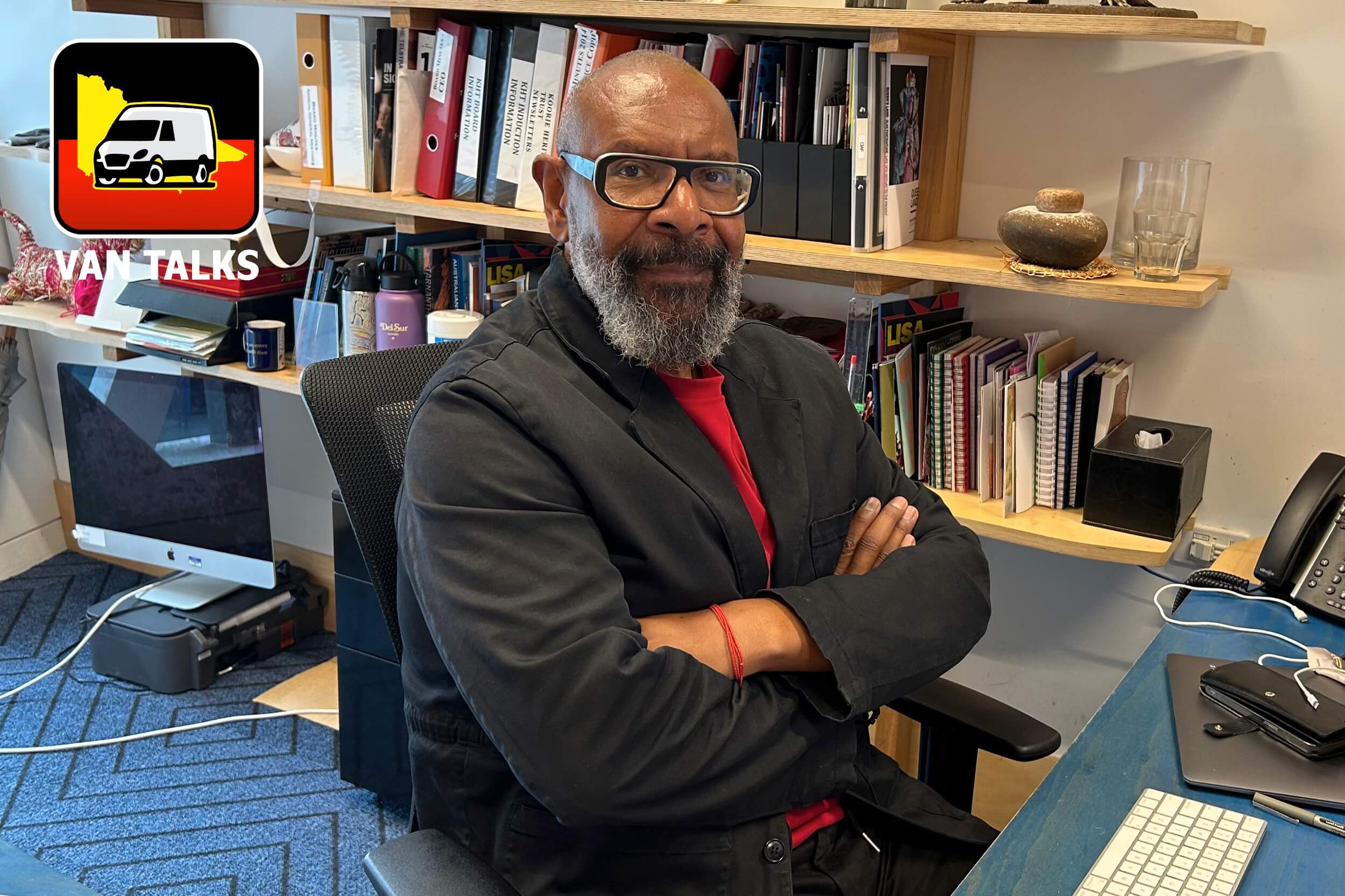
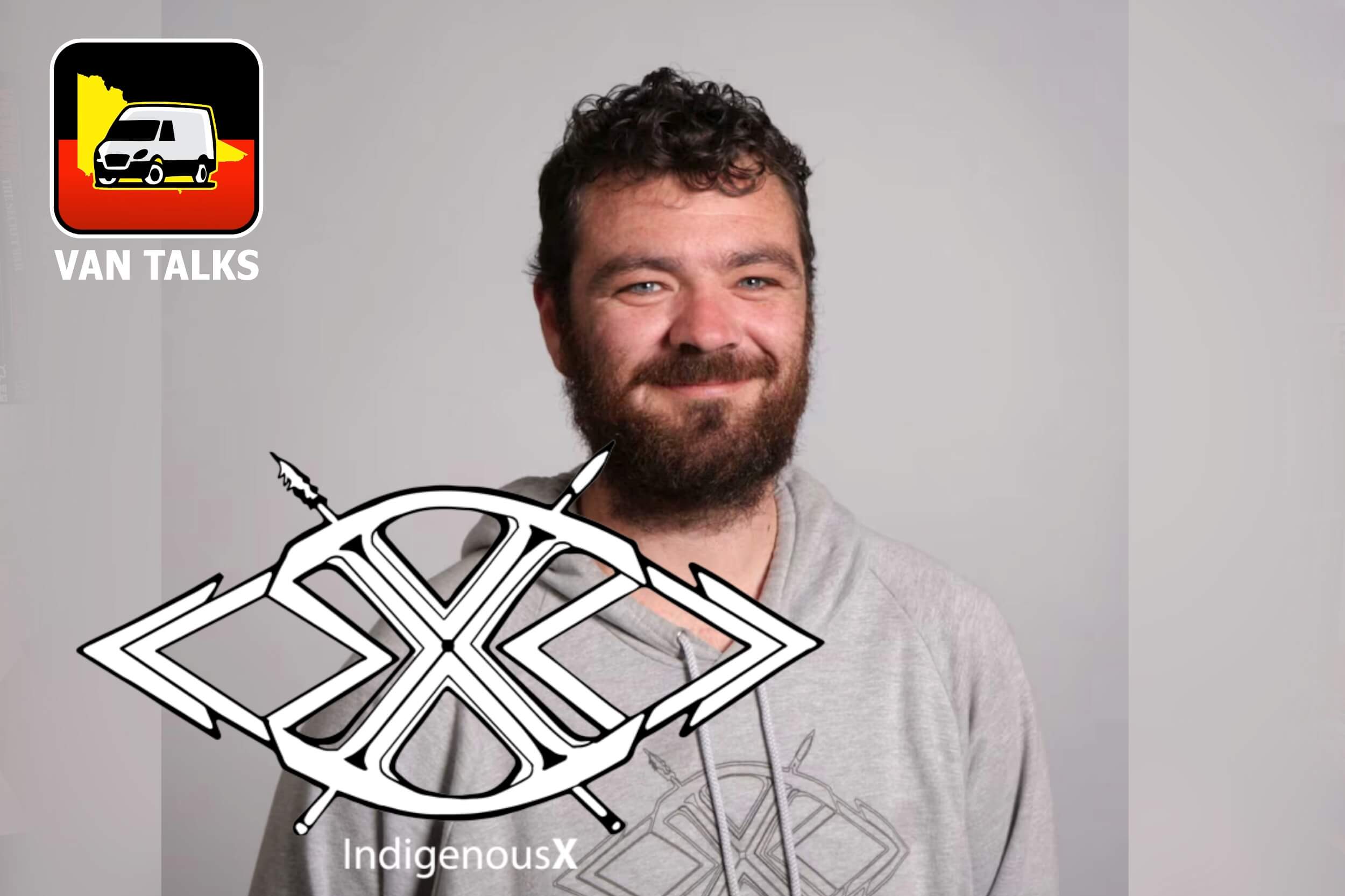
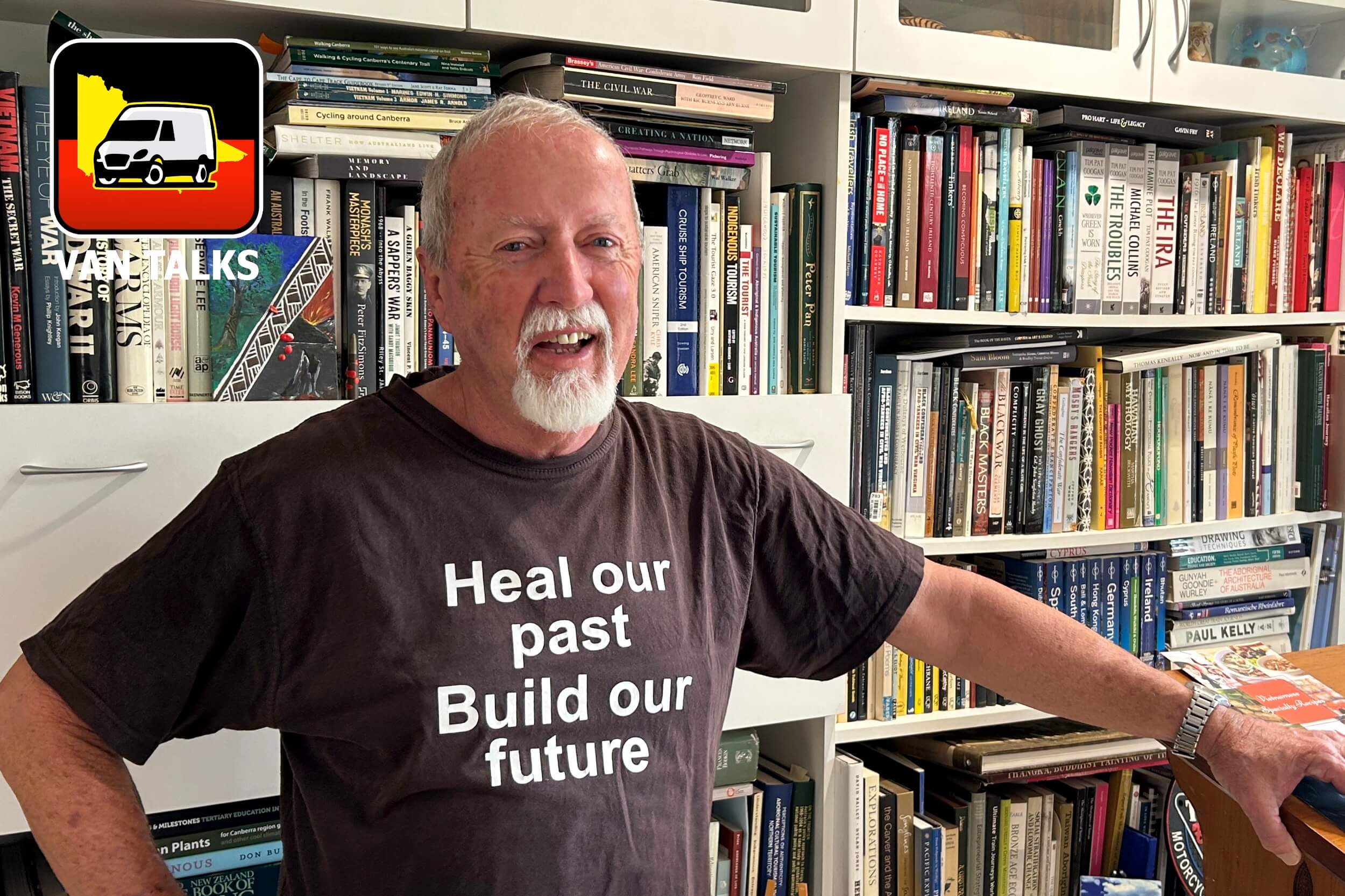
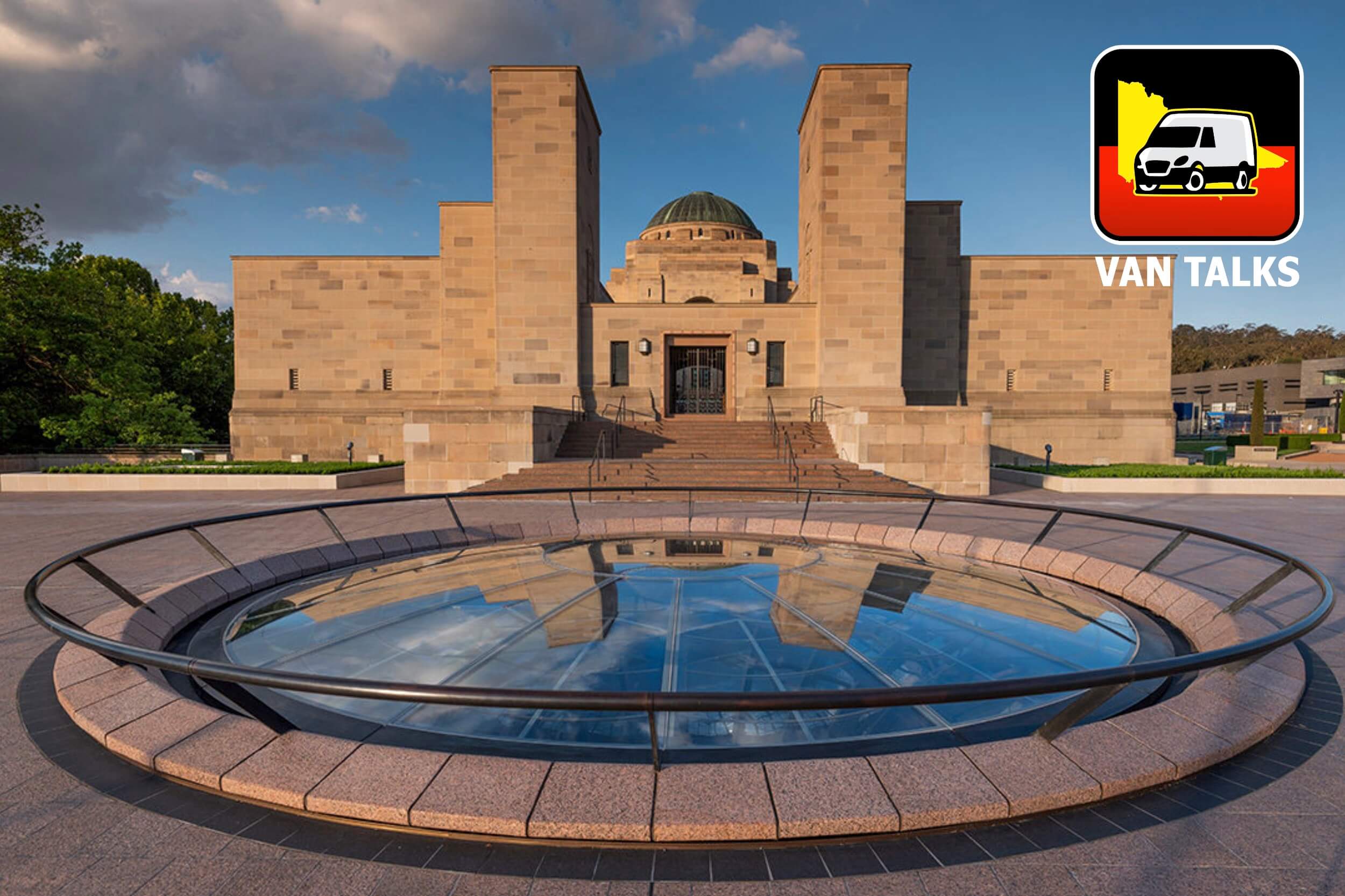

0 Comments